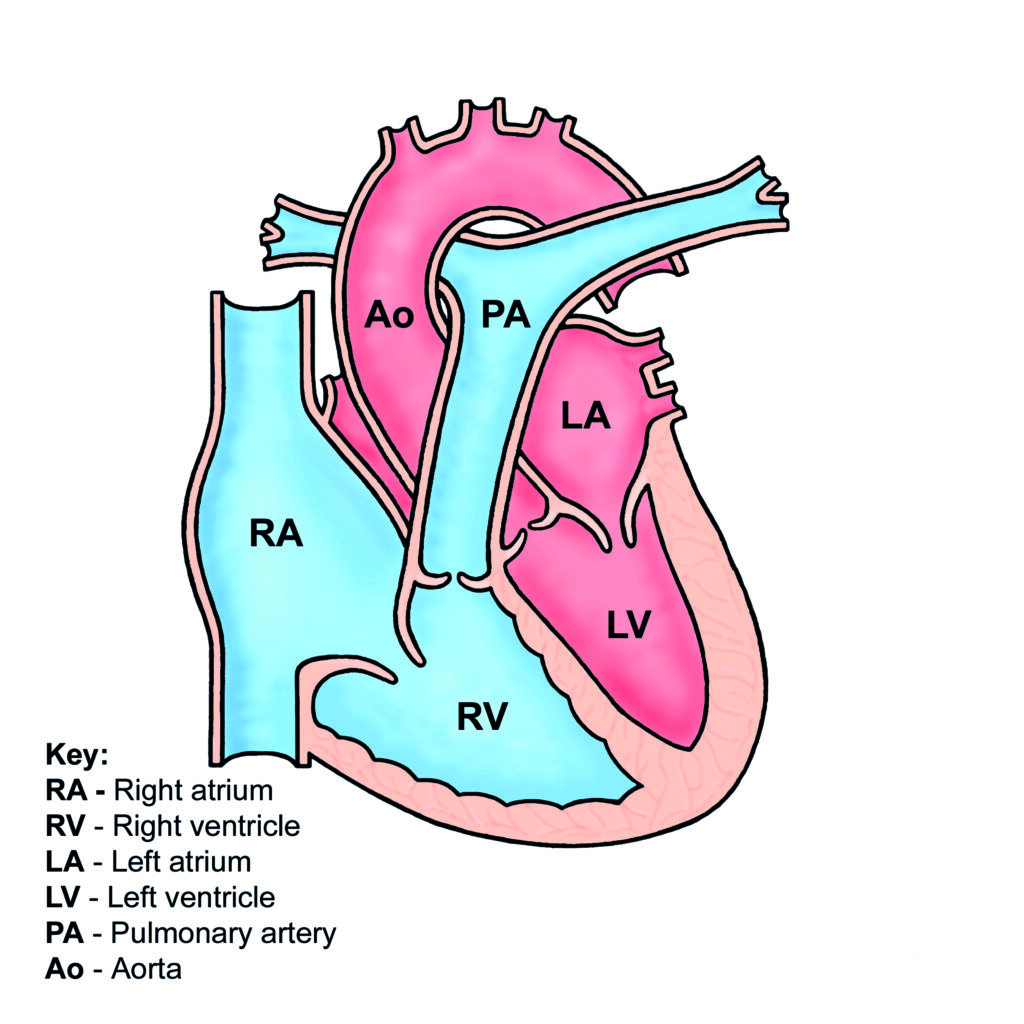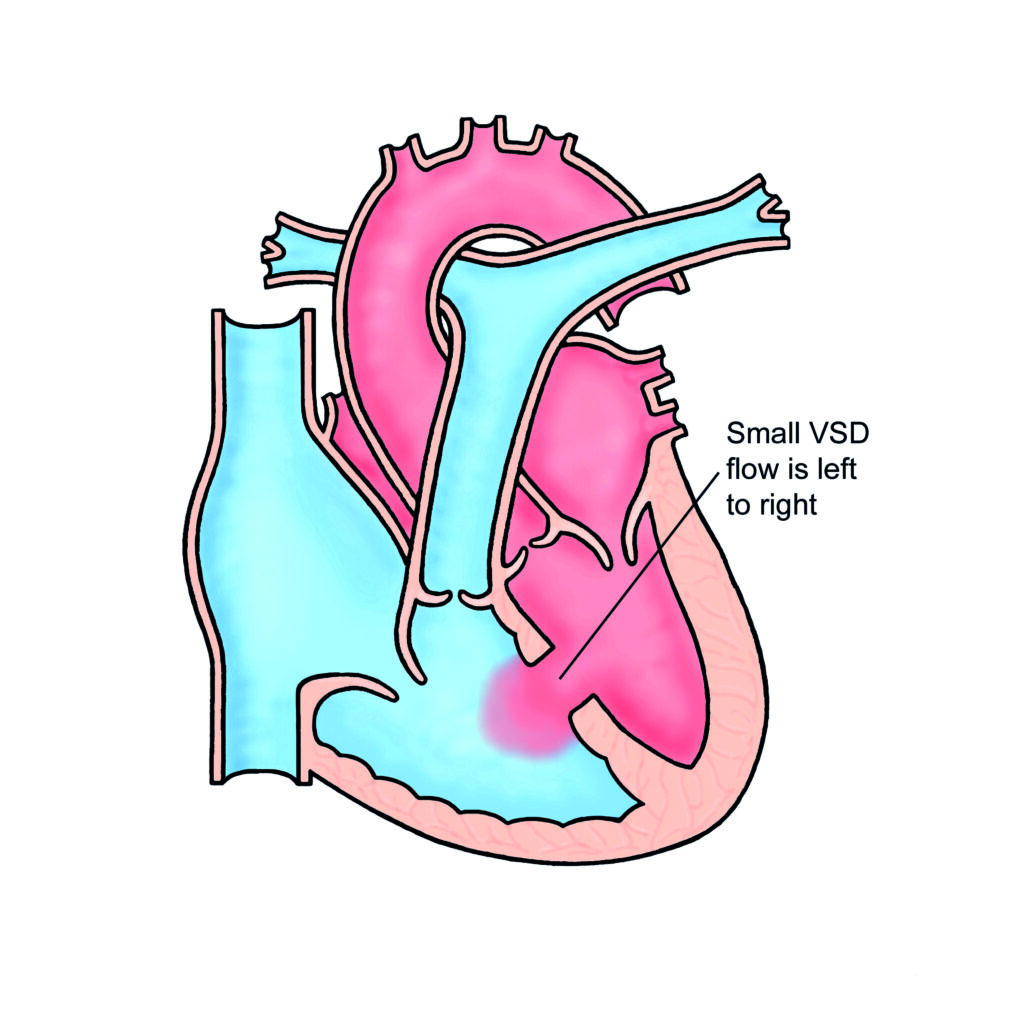This leaflet aims to give you an overview of a congenital heart condition called a ventricular septal defect.
Ventricular Septal Defect (VSD)
You were born with a ventricular septal defect, which is a hole between the two main pumping chambers (ventricles) of the heart. These holes can vary in size from tiny to large.
They often get smaller through childhood, and sometimes close on their own. However, if your VSD has not closed on its own by the time you are an adult, it is very unlikely to do so.


Management of VSDs in adults depends upon the size and position of the hole. If the hole is very small and not near to any of the heart valves, nothing further needs to be done, and we may discharge you.
If the hole is small but near to one or more of the heart valves, there is a chance that you may develop a problem with one of these valves as the years go by. This is because blood flowing through the VSD can damage the valve over time. If this is the case you will be kept under follow up so we can check on your heart valves from time to time by performing an echo (heart ultrasound). Very occasionally, people need an operation to repair or replace a damaged heart valve related to a VSD.
If the hole is particularly large, extra strain may be put on the heart and we recommend that the hole is closed. This can be done either with an operation, or in some people a keyhole approach is possible.
Murmur
All people with VSDs have heart ‘murmurs’. This is just the noise that is made as blood passes through the hole. VSD murmurs can be very loud. This is normal and nothing to worry about in itself.
Endocarditis
All patients with a VSD are at an increased risk of endocarditis (infection in the heart). It is important that you have good dental hygiene and you visit the dentist every 12 months. Some people require antibiotics before invasive dental treatment. Please ask your doctor or specialist nurse if this applies to you. Due to the increased risk of infection we would also advise against body piercing and tattoos.
Lifestyle
There should be no restrictions placed on your life. Regular exercise is encouraged. It is good for your general health and wellbeing and beneficial for your heart and circulation.
If the hole is small and has not required any treatment by adulthood then you can take part in all kinds of sport. Some people with VSDs can’t take part in sports such as scuba diving, please ask if you need more information about this.
Pregnancy and contraception
For both men and women, the chances of having a baby born with congenital heart disease are slightly increased from the general population if you have congenital heart disease yourself. The risk is generally quoted as being about 4-5%, compared to 1% for the general population. Your cardiologist or specialist nurse can discuss this with you in clinic prior to planning a family. We can offer a specialised scan of your unborn baby’s heart at 18-20 weeks, which can detect any major abnormality of the heart.
You are unlikely to have any problems related to your VSD in pregnancy. If you are planning a pregnancy, please let us know beforehand. We may want to see you once during pregnancy.
From a cardiac perspective, you can have any form of contraception with a VSD. If you have other problems such as high blood pressure or you are a smoker then this should be discussed with your GP. Speak to the specialist nurses if you need more advice about this.
Ventricular Septal Defect (VSD) – YouTube
It is important for you to come to your follow up appointments. These may only be every 4-5 years in our specialist nurse clinic. Please let us know if you move house.
Contact us
Please visit our website: